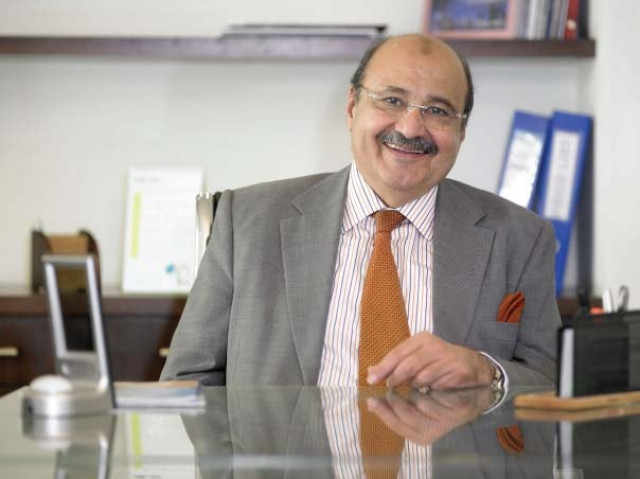Steel demand to rise if hurdles are overcome
International Steels MD sees risks in steel business all over the world.

A top executive in the domestic steel industry has expressed belief that Pakistan can triple its per capita steel consumption in five years if problems like power crisis and security issues are tackled effectively.
In an interview with The Express Tribune, International Steels Limited (ISL) Managing Director Towfiq Chinoy highlighted the huge potential for growth in the local steel industry and hoped “steel consumption will go up to 100 kg per person annually from present 35 kg per person.” However, he quickly added that the country needed to improve its burning economic problems to achieve the target.
Average steel consumption in the world is 218 kg per person. The demand of steel indicates the level of industrial activity in a country.
International Steel, a subsidiary of International Industries Limited, launched an Initial Public Offering (IPO) at the Karachi stock market on April 12. The offer of 61.9 million shares was heavily oversubscribed, reports say.
Talking about high risks associated with steel business, Chinoy said “steel is now a risky business all over the world owing to sharp variations in its prices.” Elaborating the point, he said just three years ago, a $10 increase in world steel prices was considered a big jump and the industry used to take it seriously. But, “this is not the situation anymore.”
“Steel prices were at $900 per ton last month and today they have come down to $700. This roller-coaster ride in prices is now a normal thing for steel business,” Chinoy said.
Positives and negatives
In Pakistan, the steel industry faces some serious threats. “Under-invoicing and imports of high-quality raw material under the garb of scrap and smuggling through the Pak-Afghan border are major threats to the industry,” Chinoy said.
However, he believed there was also a positive side of the story, saying the steel business in Pakistan was relatively protected. The situation in Pakistan was relatively better as a major quantity of hot-rolled steel was being imported with a time lag of about three months, reducing the impact of any sharp fluctuation in prices, he said. “So we can say that the steel market is less volatile here,” he added.
Replying to a question, he said the growth rate in steel industry had been dampened by slow economic recovery of the country. Earlier in 2006-07, the steel industry posted a strong growth of around 15 per cent when gross domestic product (GDP) grew around seven per cent.
The company
On production targets of ISL, Chinoy said the company’s new plant would significantly add to the country’s economic progress by manufacturing 250,000 tons of Cold-rolled Steel (CRC) per annum, of which 150,000 tons would be converted into Hot Dipped Galvanised Coils (HDGC).
The facilities at ISL have been so designed that they will add a second production line to increase capacity from 250,000 tons to 400,000 tons of CRC per annum. Also, ISL has plans to expand into Galvalume and colour-coated steel business in the near future.
CRC is used as a premium raw material for various value-added products eg automotive parts, electrical motors, lighting ballasts, racks/shelves, water heaters, commercial doors, drums and pails, strapping - seals, tubular goods, etc.
HDGC is used in roofing, cladding and manufacturing refrigerators, elevators, ovens, automotive components, etc.
ISL, incorporated in 2007, started commercial operations in January this year with an investment of $130 million with equity contributions from Sumitomo Corporation and International Finance Corporation.
Published in The Express Tribune, April 21st, 2011.



















COMMENTS
Comments are moderated and generally will be posted if they are on-topic and not abusive.
For more information, please see our Comments FAQ